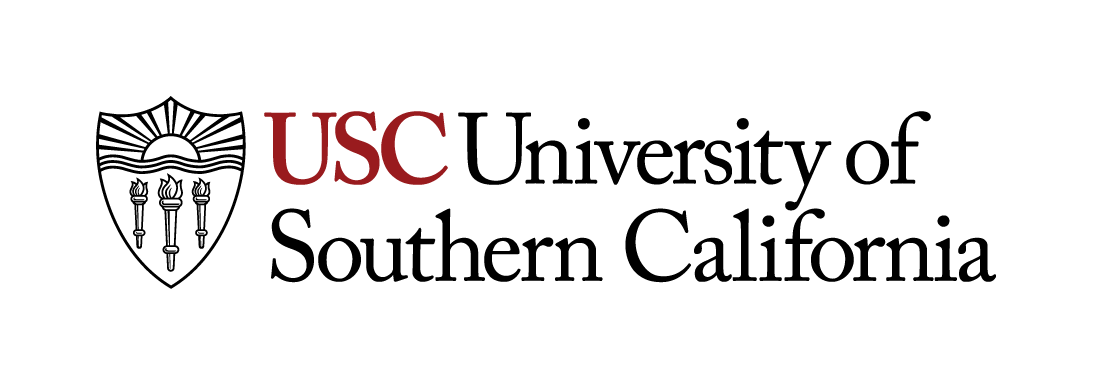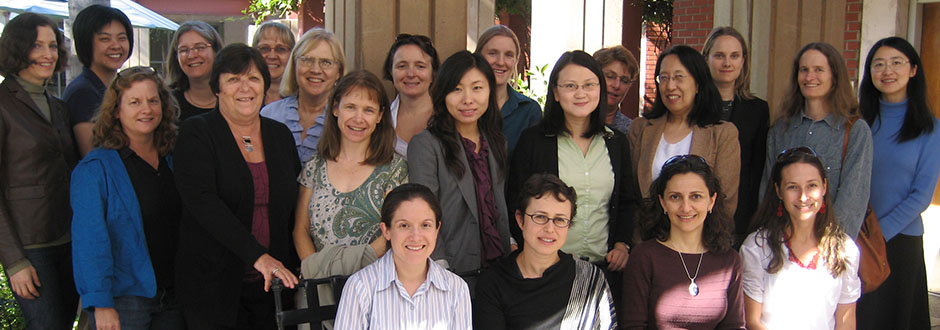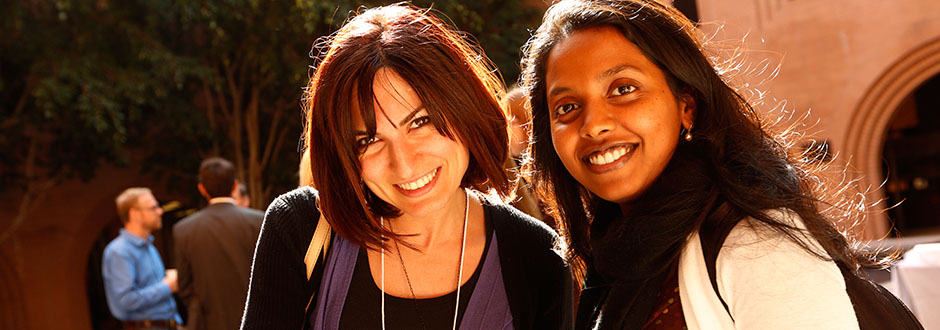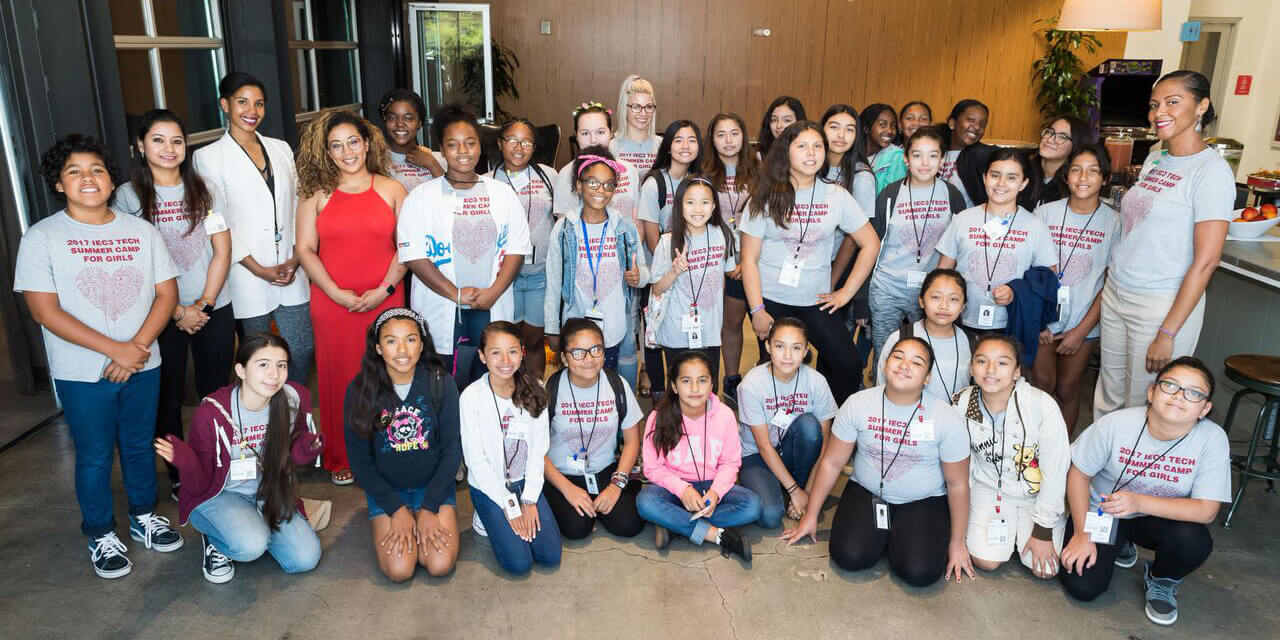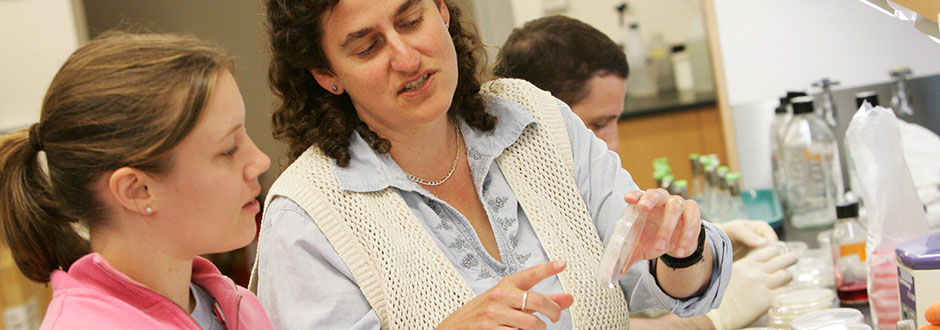Speaker Bios
Richard Ng, Professor, Department of Mathematics, Louisiana State University
Richard Ng is a professor of mathematics at Louisiana State University. He received his Ph.D. degree from Rutgers University-New Brunswick in 1997 under the supervision of Earl J. Taft. For more than two decades, Ng has been working on Hopf algebras, tensor categories and related topics in mathematics and physics. He and his collaborators developed the arithmetic invariants of spherical fusion categories, called the generalized Frobenius-Schur indicators, which have applications in rational conformal field theory and quantum computations. The exemplary article, “Rank-Finiteness for Modular Categories”, published in the Journal of the American Mathematical Society in 2016, also won the 2019 Alexanderson Award given by the American Institute of Mathematics (AIM). Ng was also awarded in 2017 the NSF Focused Research Groups funding on the mathematical foundation of quantum computing, and served in the Spring of 2020 as Research Professor for the program on Quantum Symmetry at the Mathematical Sciences Research Institute (MSRI).
Talk title: Frobenius-Schur indicators as invariants of 3-manifolds
Abstract: Frobenius-Schur indicators, introduced a century ago for the complex representations of finite groups, were recently discovered to be categorical and topological invariants. Linchenko and Montgomery generalized this notion to the representations of semisimple Hopf algebras. This earth-shattering generalization has inspired a series of developments and applications of Frobenius-Schur indicators in modular tensor categories and beyond. In this talk, we will rediscover Frobenius-Schur indicators of nonsemismple Hopf algebras as Kuperberg invariants of 3-manifolds, which unearth new constructions of gauge invariants of Hopf algebras. This result is based on a joint work with Liang Chang and Yilong Wang.
Yevgenia Kashina, Professor, Department of Mathematical Sciences, DePaul University
Yevgenia Kashina defended her PhD thesis in 1999 at the University of Southern California under the supervision of Susan Montgomery. After graduation, she spent one year as a Postdoctoral Fellow at the Mathematical Sciences Research Institute in Berkeley, California. Then she held a two-year teaching and research postdoctoral position at Syracuse University. In 2002 Yevgenia Kashina joined DePaul University, where she currently works as a professor of mathematics.
Talk title: Applications of Frobenius-Schur indicators
Abstract: In 2000, Susan Montgomery, together with her student Vitaly Linchenko, extended the notion of Frobenius-Schur indicators from groups to semisimple Hopf algebras. This fundamental paper made a great impact on the field of Hopf algebras and laid the groundwork for the theory of Frobenius-Schur indicators.
In this talk we will first discuss the results of Susan Montgomery’s joint work with Geoff Mason and the speaker, published in 2002. In this paper, we obtained an explicit formula for the (second) Frobenius-Schur indicator of a class of semisimple Hopf algebras, which are called cocentral abelian extensions and include Drinfeld doubles of group algebras. As a consequence, it was shown that the indicator is always positive for Drinfeld doubles of symmetric groups. In addition, this formula was used for classification purposes in order to distinguish between nonisomorphic semisimple Hopf algebras.
We will then discuss further properties and applications of (higher) Frobenius-Schur Indicators, for example, their use in the proof of the analogue of Cauchy’s theorem and recent classification results.
Yuri Bahturin, Professor, Department of Mathematics and Statistics, Memorial University Newfoundland
Yuri Bahturin began teaching at Moscow State University (MSU) in 1970. He got my M SC and PhD degrees from the same university. In 1985 he was awarded with the degree of Doctor in Mathematics and Physics and became Full Professor in MSU. His first journal paper appeared in 1968. Since then he authored and coauthored more than 130 journal papers and 8 books. He spent an academic year 1978/79 in UK and several semesters since 1994 in the universities of USA, including USC. He emigrated to Canada in 1999 and since then he holds the position of University Research Professor at Memorial University of Newfoundland (MUN). He also serves as Director of Atlantic Algebra Centre at MUN. In 1994 he began his collaboration with Professor Susan Montgomery, with whom he has published 7 joint papers, the latest one in 2021.
Talk title: Hopf Algebras and Their Action on Rings
Abstract: During my first visit to the University of Southern California in 1994 I learned from Susan Montgomery about her new book, whose title I borrowed for the title of the current talk. I quickly bought the book from the University bookstore. It was my first book on Hopf algebras and became the basis of my future joint research with Susan. I was fascinated by the beauty and versatility of the theory of Hopf algebras and began applying it in my work. As it happened, the use of Hopf algebras became a turning point in the study of gradings on algebras, in particular, in the classification of group gradings on simple Lie, Jordan, etc. algebras and superalgebras. One of the important papers on this topic was a 2009 paper joint with Susan Montgomery and Mikhail Kochetov. Currently, the classification of gradings on simple algebras is a mature theory. It is time to use the results of that theory to the study of actions of Hopf algebras on algebras. In this talk I would like to mention some results in this direction from our most recent paper with Susan, appearing in 2021.
Peter Schauenburg, Professor, Department of Mathematics, Institut de Mathématiques de Bourgogne, Université Bourgogne Franche-Comté
Peter Schauenburg studied mathematics and a grain of physics at the University of Munich [Universität München] 1986-1991, getting his diploma in 1991. He then worked on his PhD in mathematics, which he received in 1993. From 1991 to 2003 he held various scientific assistant positions in Munich. Most of 1995 he spent as a visiting assistant professor at USC. From 2003 to 2010 he was supported by a Heisenberg fellowship of Deutsche Forschungsgemeinschaft, allowing him to visit USC for 7 months in 2003 and Tsukuba (Japan) for three months in 2004. After temporary professor positions in Munich (2006) and Konstanz (2009), he is now a professor at the Université de Bourgogne in Dijon since 2011.
Talk title: Computing Frobenius-Schur Indicators
Abstract: Frobenius-Schur indicators, born early in the 20th century for representations of finite groups, and subsequently generalized to various degrees (starting with the generalization to Hopf algebra representations by Linchenko-Montgomery) are an important theoretical tool in the study of Groups, Hopf algebras and tensor categories. For concrete examples, it is often a formidable task in itself to calculate explicit values of these numerical invariants. Even where formulas are available it may be unfeasible to enter the relevant data into them, especially with paper and pencil. Calculations sometimes only become feasible when delegated to a computer, and even then may require considerable efforts to keep the computational cost at bay as examples grow in size. We will report on some aspects of such calculations, and in particular on a so far undecided conjecture of Susan Montgomery and her student Rebecca Courter, which can be experimentally tested up to examples of staggering size but so far defies a proof.
Lance Small, Emeritus Professor, Department of Mathematics, University of California San Diego
Lance Small received his Ph.D (adviser: I.N. Herstein) in 6/65 from UChicago and has taught at UC Berkeley, USC, and UCSD. Along the way, he was at NSF for three years(1996-99) and had various roles with AMS(editing, Associate Secretary, etc.) and 18 Ph.D students.
Talk title: Base Field Extensions of Certain Ring Properties
Abstract: A paper, written 20 years ago by Resco and Small, constructed an example in prime characteristic of a finitely generated Noetherian K-algebra that does not necessarily remain Noetherian under field extensions. After that work was completed, Yuri Medvedev, then at the University of Ottawa, visited Resco at the University of Oklahoma, read the paper, and suggested an approach using Jordan algebras that would yield a similar example in characteristic 0. This was announced in the paper by Resco and Smal; but, to our knowledge, the details were never published nor even entirely verified.. Also, Resco suggested avoiding Jordan algebras and working directly and ring theoretically with the exterior algebra. This is the approach we take.
Full details will appear in a forthcoming paper in the Bulletin of the London Mathematical Society by D.S. Passman and L.W. Small.
Robert Guralnick, Professor, Department of Mathematics, University of Southern California
Robert Guralnick is a professor mathematics at USC. He is the author of more than 250 scientific articles. He won the Frank Nelson Cole prize in Algebra in 2018 and was an invited speaker at the 2014 International Congress of Mathematicians. He is a fellow of the AMS and of the American Association for the Advancement of Science. He served as managing editor of the Transactions of the AMS for eight years.
Talk title: Automorphisms of Certain Matrix Rings
Abstract: I will discuss some joint work with Susan Montgomery on some problems involving automorphisms of certain matrix algebras and in one case its connection a generalization of some results in commutative algebra.
